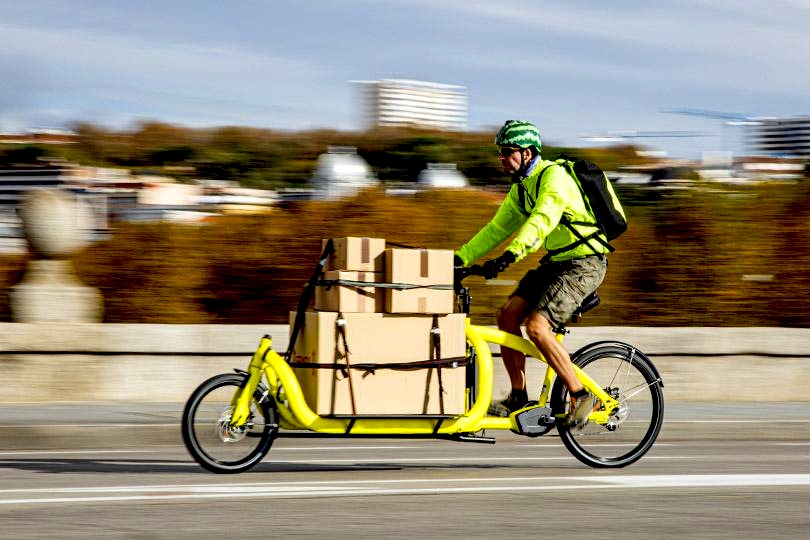May 8, 2021 - One year after the launch of its Cycling Plan, the French government is putting in place a national cycling agenda to reduce greenhouse gas (GHG) emissions from the transport of goods. In total, 12 million euros in energy saving certificates are dedicated to the program.

Accelerated by the health crisis linked to the coronavirus pandemic, the development of city deliveries in several French cities has had a heavy impact on air pollution and contributes to regularly exceeding authorized air pollution thresholds. In Paris where the transport of goods represents 15-20% of the traffic, it generates 45% of the fine particles emitted.
The sale of cargo bikes has increased sharply over the year 2020, and the objective of this national cyclo-logistical plan is to promote the use of these clean delivery methods by establishing economic incentives for stakeholders in the sector, and the deployment of infrastructure necessary for its development.
Funded by energy saving certificates (CEE), the ColisActiv system will help support players in cargo-bike delivery thanks to financial assistance over the next three years. The funding represents up to two euros per package for the first 500,000 in year 1, up to 1.30 € for 1.5 million packages in year 2, and 0.6 € for 3 million packages in year 3.
To date, four test cities can benefit from this experiment in return for co-financing of the system – read the full report here.


















